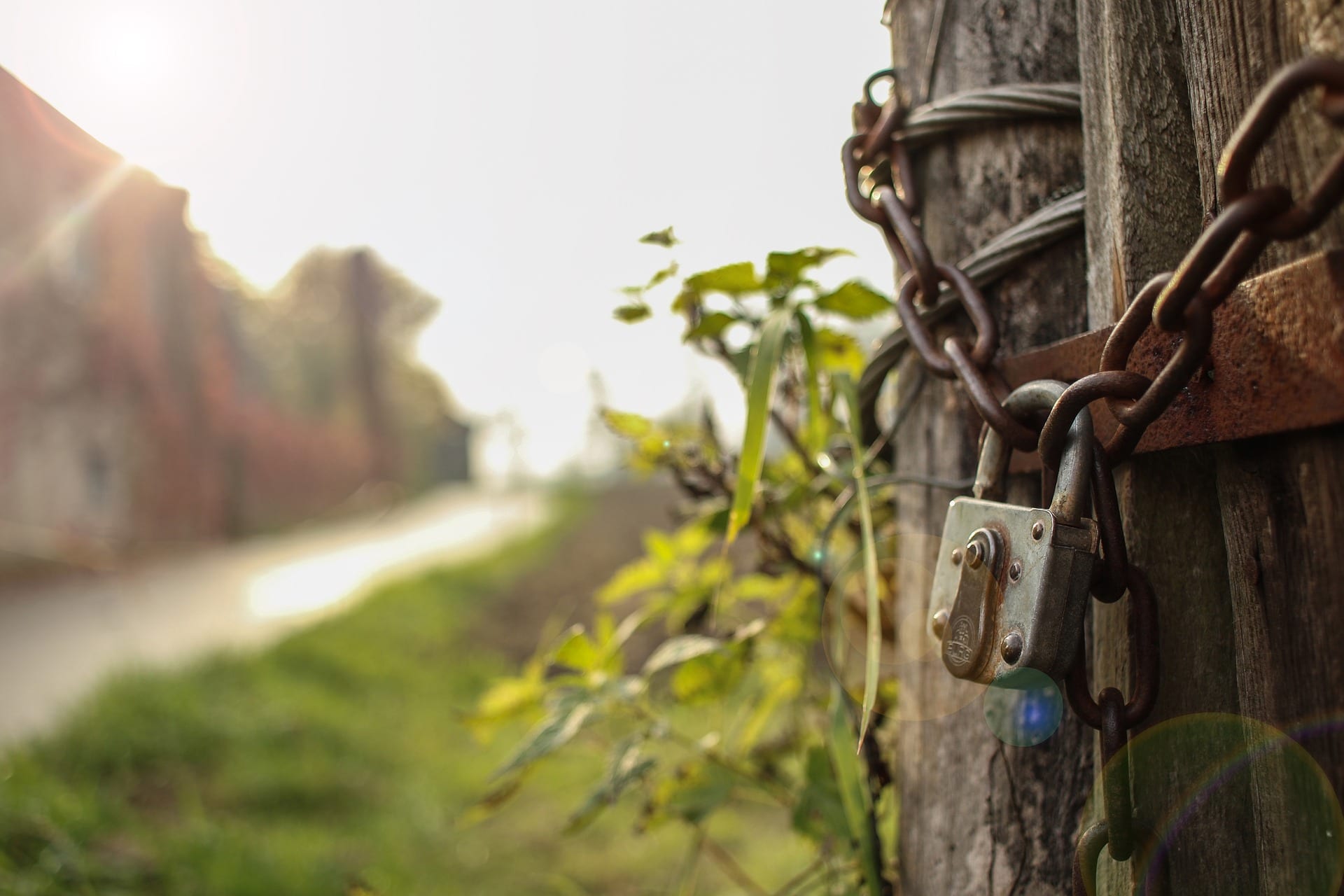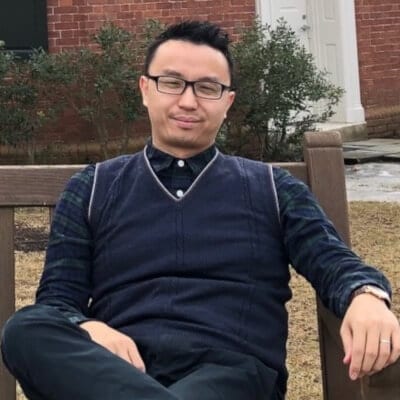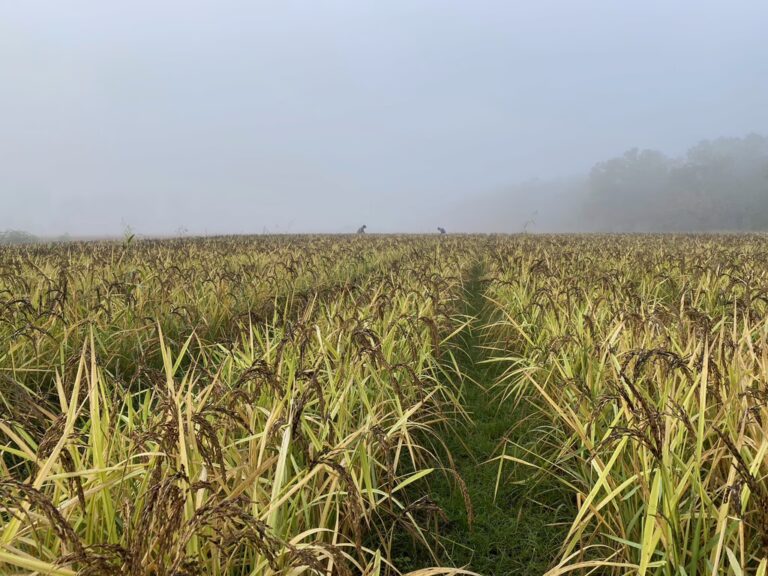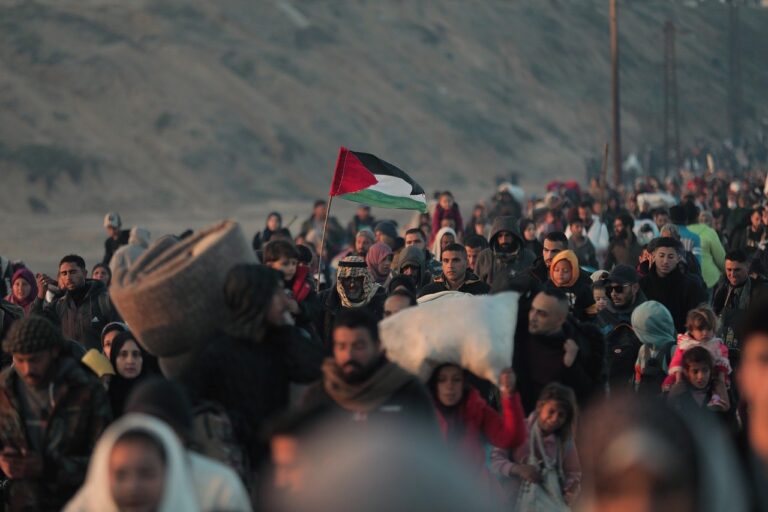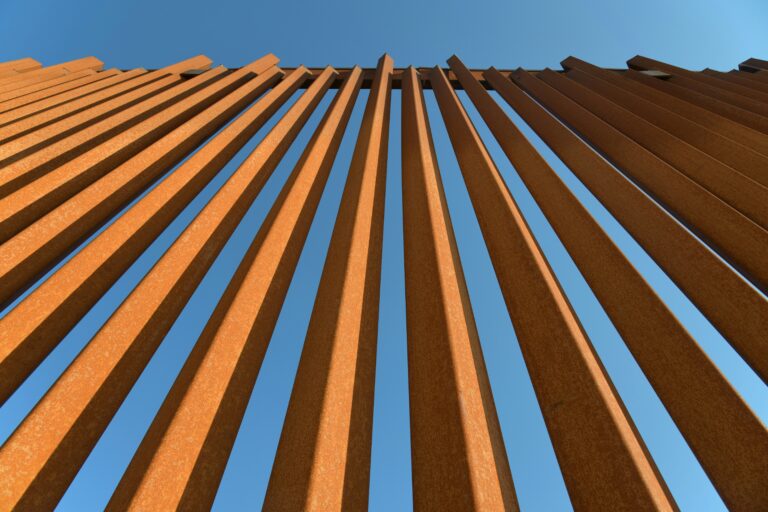In May, in the Canadian province of British Columbia, the bodies of 215 children were found at the former Kamloops Indian Residential School, which closed in 1978. In June, a further 751 unmarked graves were discovered at the site of the former Marieval Indian Residential School in Saskatchewan, which was operated by the Roman Catholic Church from 1899–1997.
These residential schools, of which there were once more than 130 across Canada, are a reminder of what contemporary sensibilities recognize as a vicious campaign to destroy the cultural, social, and spiritual identity of indigenous children.
Physical and sexual abuse were rife at these government-funded, church-run schools, whose explicit mission throughout the 19th and 20th centuries was to assimilate indigenous youth. According to 80-year-old elder Florence Sparvier, a survivor of the Marieval Indian Residential School and a member of Cowessess First Nation, school staff tried to brainwash the children into believing that they had no souls. The nuns declared that they had a new savior and that their ancestors were hell-bound heathens. This psychological abuse and forced religious conversion inflicted colonial trauma on multiple generations of indigenous people. The schools themselves, poorly constructed and heated, suffered from appalling hygiene, with squalid sanitary conditions probably causing many of the deaths. An estimated 6,000 children died in these hellish places.
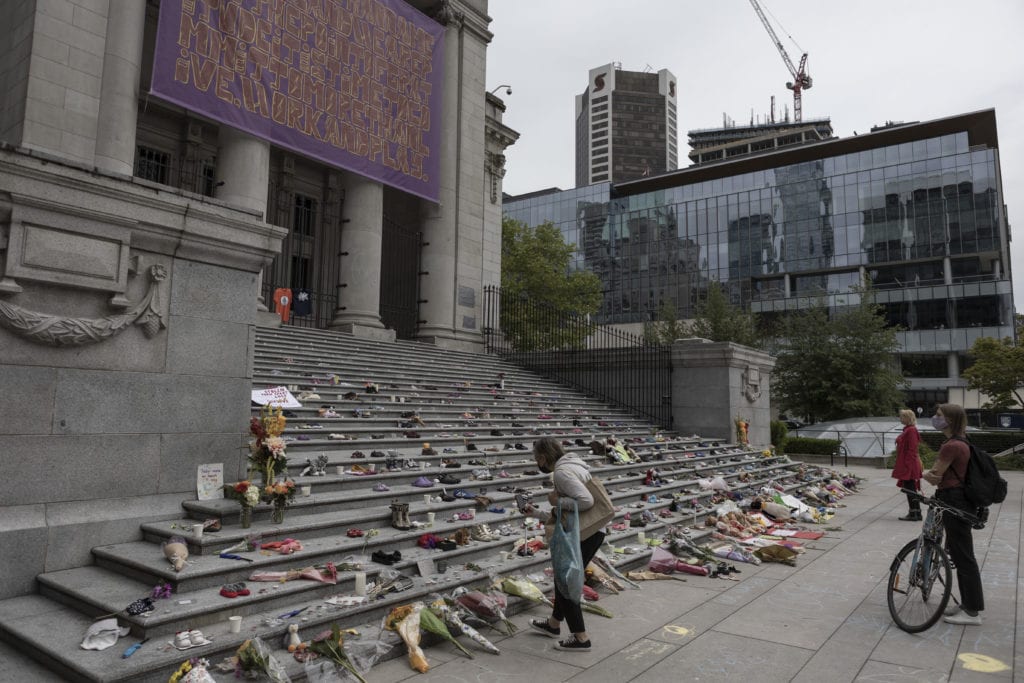
It is difficult to articulate the profound pain and perverse symbolism of finding these innocent, wronged bodies in the ground—on land that is sacred to indigenous traditions. The discovery of these bodies highlights the original sin of land dispossession at the hands of colonialists, and the subsequent abuse of power that occurred based on the seizure of that land. Given that 70 per cent of these schools were managed by Catholic leaders at their height, there is an inevitable reckoning with the Catholic Church’s role in the mistreatment and abuse of these children, whose deaths were undocumented.
The discovery of the unmarked graves of so many children is but a reminder of the urgency of not only restitution for the past, but restoration for our shared future.
Examining this tragedy more broadly, how should religion and religious communities in Canada and beyond act in the face of such hidden, intergenerational suffering?
There are many words for what needs to happen between Indigenous peoples and the government: restitution, recompense, reparations. The overarching objective must be a restoration of relations and justice. In 2008, the Canadian government formally apologized for the system enforced by these schools, but renewed interest thanks to the recent terrible news has prompted Canadian prime minister Justin Trudeau to urge the Catholic Church to issue its own apology. This would seem a reasonable exhortation. The Catholic Church has never formally apologized, but the Archdiocese of Regina did release a statement about the Marieval Indian Residential School discovery:
The grave site work brings us face to face with the brutal legacy of the Indian Residential School system, a product of a colonialist history which has left so much suffering and intergenerational trauma. The operation of the Marieval Residential School at Cowessess left many people deeply wounded by various kinds of abuse. . . . even for those of us who were not there or not involved, it is nonetheless the painful legacy that we need to carry. The incredible burden of the past is still with us, and the truth of that past needs to come out, however painful, as only truth can lead to reconciliation. (Archdiocese of Regina)
Referencing Pope Francis’ rejection of Cardinal Reinhard’s offer of resignation on 21 May, Michael Higgins, interim president of St. Mark’s and Corpus Christi colleges and a senior fellow at Massey College, wrote for one of Canada’s major newspapers: “Canadian Catholics might reasonably ask why the accountability being demanded in the wake of the sex-abuse crisis is not also being demanded in response to the sordid history of the residential schools, the damaged survivors and their descendants, the residual aftershocks of trauma and the anguished cries for reparation and reconciliation.” (The Globe and Mail) It would seem that a formal apology is a small yet essential step that would demonstrate contrition, Christian repentance, and a sincere attempt at restitution. This sincerity would be a good foundation for further progress and dialogue.
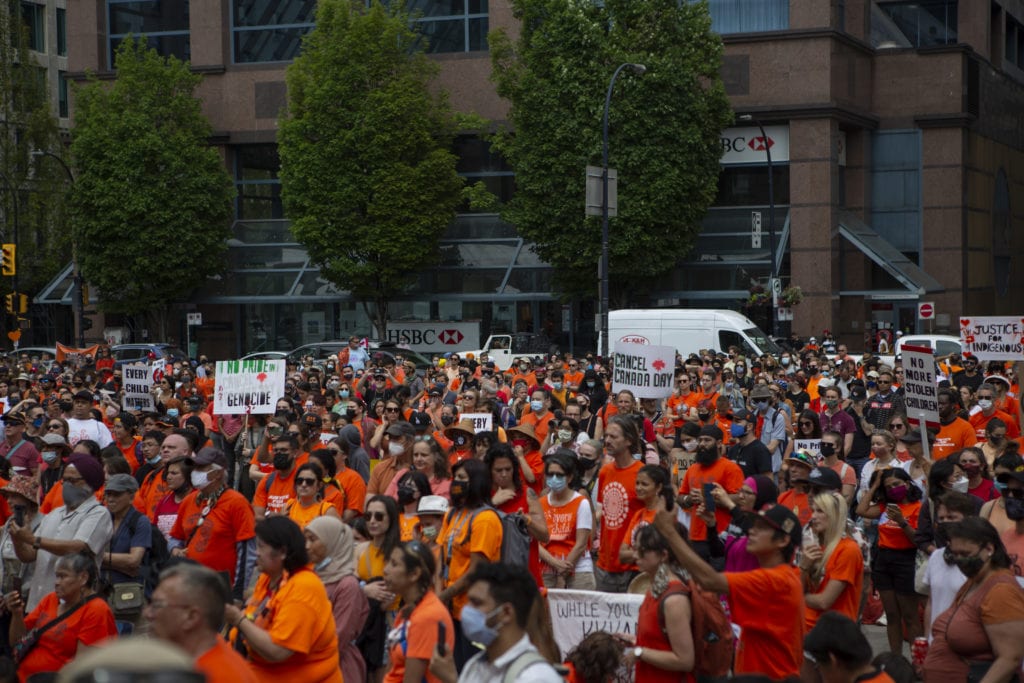
Buddhist Alliance with Indigenous Activism
It is never easy to say sorry, but perhaps even harder is the next step in this process of reconciliation: one that involves changing the dominant paradigm of our relationship with the land. Because land is a sacred, living entity to indigenous groups (rather than mere “property” to be occupied, traded, and speculated on), justice is intimately tied to any Buddhist alliance with indigenous activism. As Dr. Natalie Avalos, assistant professor of Native American and Indigenous Studies at the University of Colorado, writes: “Buddhist teachings brought to the West have been so impactful partly because of their ability to offer a new paradigm—an alternative to the Christian metaphysic that drove manifest destiny as well as its secular, materialist cousin that drives development. Buddhist views often center land-based logics as not just fundamental to practice but also fundamental to understanding what it means to be human.” 1Avalos, Natalie. 2020. “Land-Based Ethics and Settler Solidarity in a Time of Corona and Revolution.” In The Arrow: A Journal of Wakeful Society, Culture, & Politics.
With the accelerating climate crisis and ever-greater environmental threats, the intersection between protecting indigenous communities and the sacred land is ever more vivid.
Buddhism and Christianity can work with indigenous communities and traditions to refute “settler ecologies,” deconstruct the “multiple logics of colonialism” that maintain them, and also strengthen the process by which communities reach reconciliation, with good faith and a focus on justice. 2Avalos, Natalie. 2020. “Land-Based Ethics and Settler Solidarity in a Time of Corona and Revolution.” In The Arrow: A Journal of Wakeful Society, Culture, & Politics.
Protecting sacred places, lobbying against the further exploitation of sacred lands by industrial interests, and empowering indigenous leaders with the resources to educate their communities and others about intergenerational suffering and healing, are steps that Buddhist sanghas can take an active part in, should they be welcomed as allies. The Buddhist tradition understands that the fight for indigenous land is actually an interconnected fight for all lands—one that the postcolonial Buddhist should understand, and that will also resonate with an environmentally conscious, Western Buddhist convert community. “Land-based movements” have been conducted by indigenous communities and activists for many decades, and a shared “earth-centered metaphysic” is already developing among communities of spiritual solidarity. 3Avalos, Natalie. 2020. “Land-Based Ethics and Settler Solidarity in a Time of Corona and Revolution.” In The Arrow: A Journal of Wakeful Society, Culture, & Politics.
Good faith alliances should stand in solidarity with indigenous communities with regard not only to the past pain and injustices inflicted on them, but also to contemporary threats to their well-being and future. When Bhikkhu Bodhi marched alongside activists against the Keystone XL Pipeline in 2013, there was already a sense that the natural lands and ecologies of indigenous people would become critical. With the accelerating climate crisis and ever-greater environmental threats, the intersection between protecting indigenous communities and the sacred land is ever more vivid. The discovery of the unmarked graves of so many children is but a reminder of the urgency of not only restitution for the past, but restoration for our shared future.
This article was originally published on Buddhistdoor Global as Indigenous Relations – Restoration and Restitution. It is reprinted here with permission.
“Land-Based Ethics and Settler Solidarity in a Time of Corona and Revolution” was also published on One Earth Sangha as Divesting the Mind of Colonialism.
References
- 1Avalos, Natalie. 2020. “Land-Based Ethics and Settler Solidarity in a Time of Corona and Revolution.” In The Arrow: A Journal of Wakeful Society, Culture, & Politics.
- 2Avalos, Natalie. 2020. “Land-Based Ethics and Settler Solidarity in a Time of Corona and Revolution.” In The Arrow: A Journal of Wakeful Society, Culture, & Politics.
- 3Avalos, Natalie. 2020. “Land-Based Ethics and Settler Solidarity in a Time of Corona and Revolution.” In The Arrow: A Journal of Wakeful Society, Culture, & Politics.

